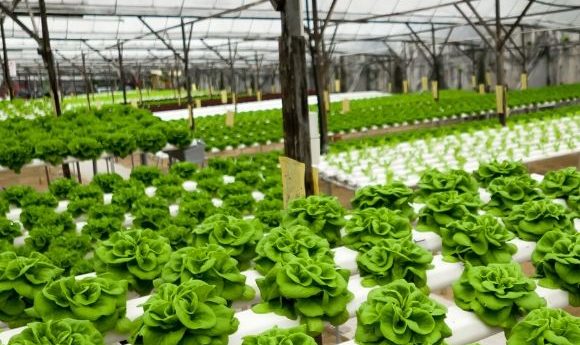Revolutionizing food production with emerging technologies

Meeting emerging technologies with the appropriate regulations, incentives and social license is essential to reform food production for people and the planet.
Over the last millennia, we have consistently refined and reconstructed our food production systems, in line with available technologies, in order to better meet global demands and improve the quality and quantity of food being produced.
However, as it stands, our current food production system is an incredible strain on the environment, with food production utilizing 40% of land on earth and acting as one of our biggest contributors to greenhouse gas emissions. As our population continues to rise as will global food demand, and it is once again necessary to look to technology for the answers.
So far, most research has focused on assessing incremental changes to food production made possible with current technologies. However, a new study led by the Commonwealth Scientific and Industrial Research Organisation (CSIRO, Canberra, Australia) has shone a light on some game-changing technologies that could have a serious impact on both people and the planet.
“We have come to a point where business-as-usual is not an option,” remarked Ana Maria Loboguerrero (International Center for Tropical Agriculture, Cali, Colombia), one of the co-author’s for this study.
In the study, published recently in Nature Foods, the researchers evaluated 75 emerging technologies with the potential to revolutionize our food production system in a variety of ways, from reducing land use and greenhouse gas emissions, to food poverty and increasing the consumption of healthy foods.
 New technologies to solve the Earth’s oldest problems
New technologies to solve the Earth’s oldest problems
Fifty years on from the first Earth Day, the Wyss Institute is demonstrating how applying novel technologies to old ideas could finally tackle these environmental problems.
Some of the technologies discussed in the article are highly familiar to us, such as drones, 3D-printing and ‘intelligent’ materials. Others were slightly more innovative, such as livestock feed made from human waste or biodegradable polymers that preserve soil moisture.
Despite the promising solutions available through emerging technologies, the authors recognized that technology alone is not enough to promote real change to our food production systems. Instead, the authors proposed eight action points that need to be addressed in order to unlock the true power of technology and accelerate food production reform.
These enabling factors focus on building social trust for any new technologies with appropriate regulations, incentives and social license. The authors acknowledge the importance of dialogue between science and society in order to build and repair trust, and state that the aim of this paper was to open up this dialogue.
“As many tech entrepreneurs see clearly, successful innovation requires a high failure rate. And with a challenge this big and this complex, we will need to attack from all sides. So, while many of these technologies could yet fail, investment in their development and testing is crucial to the future of our food systems,” explained lead author Mario Herrero (CSIRO). “Our research lays out what is needed to create the essential dialogue and the enabling environment that will accelerate the innovation we dearly need.”